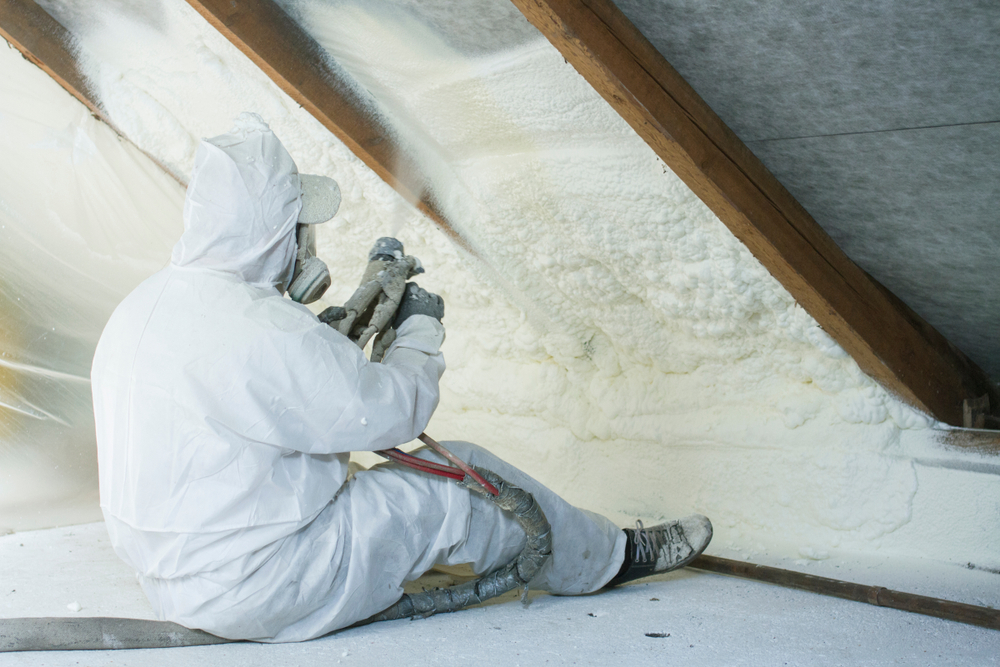Spray foam loft insulation – could it scupper your property sale or purchase?
Like other conveyancing solicitors across the country, we have recently seen an increase in property sales falling through because of spray foam insulation.
Although it has been on a list of approved government measures for a number of years, a growing number of people are reporting difficulties selling, taking out a mortgage or releasing equity from properties insulated with spray foam.
Some lenders are currently rejecting requests for mortgages on homes with spray foam insulation.
So where does this leave you if, like 250,000 other homeowners in the UK, you have tried to do your bit for climate change and keep your heating bills down by insulating your loft in this way?
Why don’t mortgage lenders like spray foam loft insulation?
Spray foam insulation is a chemical product applied using powered sprays. The foam then expands and turns into a solid coating which insulates roofs, lofts, walls and floors.
There are two types – open-cell spray foam insulation and close-cell spray with far more problems associated with the latter as it doesn’t allow timbers to breathe as open-cell foam insulation does.
When used in roofs and lofts it can eventually trap moisture around wooden joints which can lead to rotting. The hardened foam can also warp wooden beams as well as create mould and release toxic vapours.
Because it is difficult, if not impossible, to remove many mortgage providers and equity release companies refuse to lend on homes with this type of loft insulation, even when it’s been installed by a reputable firm.
What can I do if the property I want to sell has spray foam insulation?
- Make sure you have all your paperwork and any guarantees as lenders will want to see if you have open-cell or close-cell spray foam insulation and which company applied it.
- Do not try to remove it yourself.
- Check what insulation you have. Some lifetime mortgage lenders will consider properties with open-cell spray foam if it has been applied during construction, is what’s known as the ‘Icynene’ product and has a guarantee and BBA (British Board of Agreement) approval.
Why are problems with spray foam insulation and mortgages increasing?
According to industry experts, the main reason is that although a lot of people have it, there is significant difficulty in recognising the difference between foam insulation from a reputable company and foam insulation from an unreputable one.
According to Paula Higgins of the HomeOwners Alliance:
“For years, spray foam insulation has been on a government list of approved measures. Homeowners have been able to access government grants to reduce the costs of installing it in their homes, so we are shocked and dismayed that homeowners doing the right thing are now being financially penalised: they either pay over the odds to have the spray foam removed or remain stuck with homes they will find difficult to re-mortgage or sell.”
Is there hope in sight?
Yes. Two industry groups, the Residential Property Surveyors Association (RPSA) and the Property Care Association (PCA) are working with manufacturers, installers and surveyors to standardise installation and inspection procedures.
There are also plans to produce new guidance by liaising with insurers and mortgage lenders to provide reassurance that it is safe to lend on properties with spray foam loft insulation that has been installed professionally and correctly.
The guidance is due to be issued this Spring (2023).
Get in touch
Wards Solicitors’ wins high praise in the 2023 edition of the independent Legal 500 guide of outstanding legal professionals for its exceptional professional service standards and high levels of technical expertise.
Our expert and highly regarded Conveyancing Team can help with any concerns on this, or any other, conveyancing issue.


